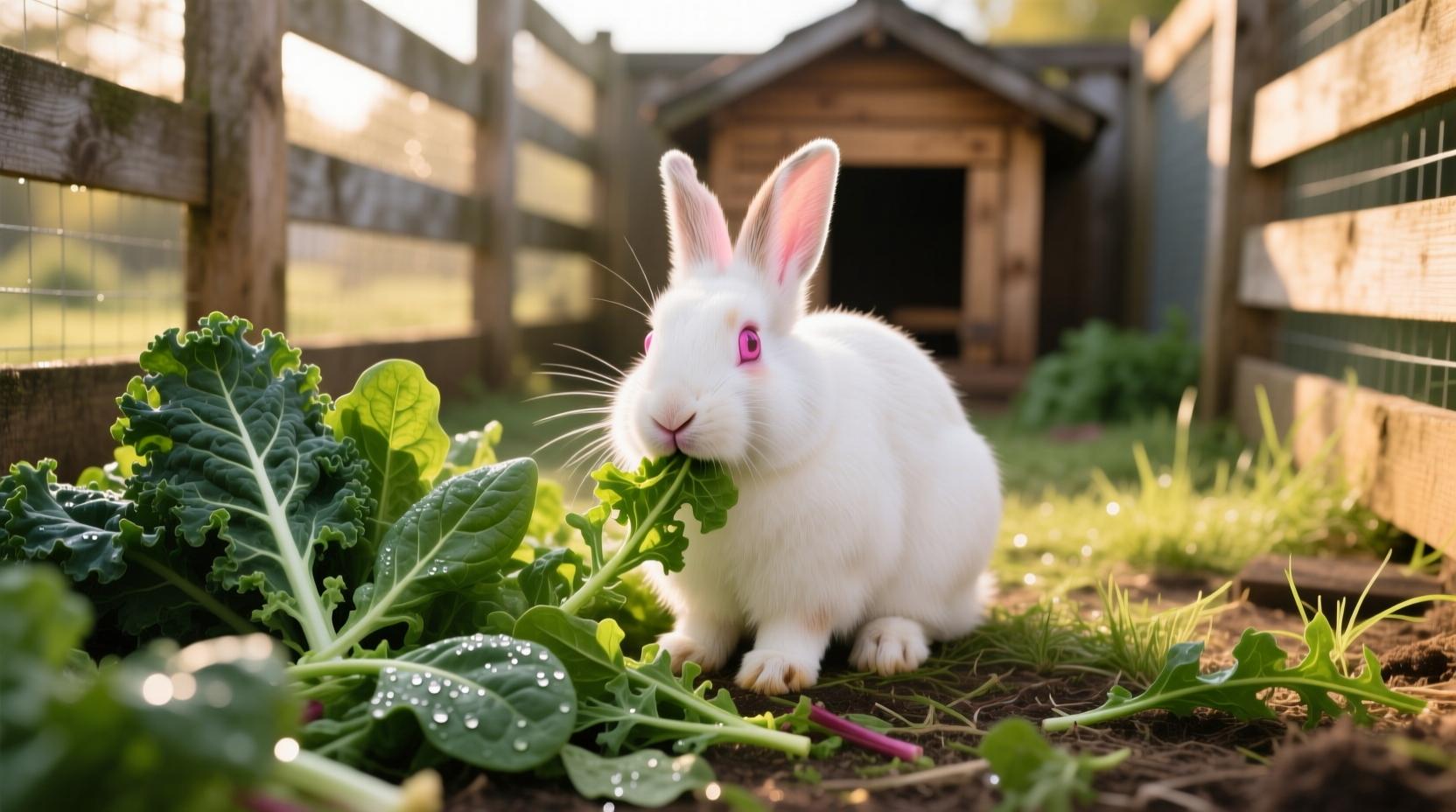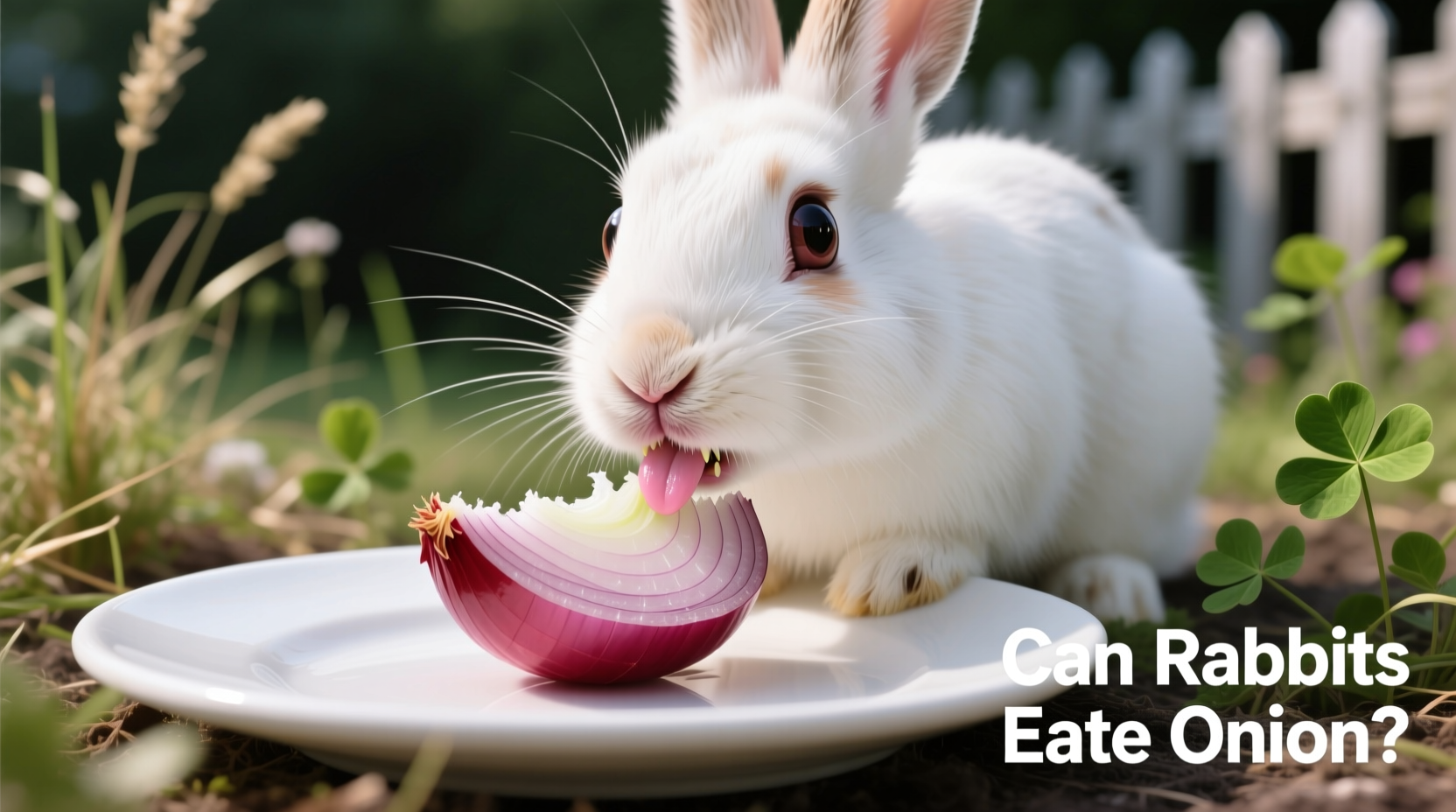If you've ever wondered can rabbits eat onions safely, the answer is a definitive no. This critical information could save your pet's life, as onion toxicity represents one of the most dangerous yet preventable health risks for domestic rabbits.
Why Onions Are Extremely Dangerous for Rabbits
Unlike humans who can safely consume onions in moderation, rabbits lack the necessary enzymes to metabolize organosulfur compounds found in Allium family plants. When rabbits ingest onions, these compounds oxidize hemoglobin in red blood cells, causing them to rupture—a condition known as hemolytic anemia.
According to the American Society for the Prevention of Cruelty to Animals (ASPCA), all parts of the onion plant—including flesh, leaves, juice, and processed powders—are toxic to rabbits. This includes:
- Raw onions (yellow, red, white)
- Cooked onions
- Green onions/scallions
- Garlic (even more concentrated toxins)
- Leeks, chives, and shallots
| Food Type | Safe for Rabbits? | Health Impact |
|---|---|---|
| Onions (any variety) | ❌ Never safe | Hemolytic anemia, organ damage, death |
| Garlic | ❌ Never safe | More toxic than onions, severe anemia |
| Carrots | ✅ Limited portions | Healthy treat in moderation (1-2 tbsp daily) |
| Leafy greens | ✅ Daily | Essential nutrition (kale, romaine, cilantro) |
Symptoms of Onion Poisoning in Rabbits
Rabbit owners searching what happens if rabbit eats onion need to recognize these critical warning signs. Symptoms typically appear 12-72 hours after ingestion and include:
- Pale or blue-tinged mucous membranes (gums, eyelids)
- Lethargy and weakness (difficulty hopping)
- Rapid breathing or labored respiration
- Loss of appetite lasting more than 12 hours
- Red or brown urine (indicating hemoglobinuria)
- Jaundice (yellowing of skin/membranes)
The House Rabbit Society emphasizes that rabbits showing these symptoms require immediate veterinary attention. Without treatment, onion toxicity can progress to kidney failure, collapse, and death within days.

Emergency Response: What to Do If Your Rabbit Ate Onion
If you're searching rabbit ate onion what to do right now, follow these critical steps immediately:
- Remove all onion remnants from your rabbit's environment
- Note the time and estimated amount consumed (take photos of remnants)
- Contact an exotic veterinarian immediately—do not wait for symptoms
- Do NOT induce vomiting (rabbits cannot vomit)
- Keep your rabbit warm and quiet during transport to the vet
Veterinary treatment typically involves intravenous fluids, oxygen therapy, and in severe cases, blood transfusions. The Veterinary Partner notes that early intervention significantly improves survival rates, with prognosis worsening considerably after 24 hours.
Safe Vegetable Alternatives for Rabbits
Rabbit owners often search what vegetables can rabbits eat instead of onions. Focus on these safe, nutrient-rich options:
- Leafy greens: Romaine lettuce, cilantro, parsley, dandelion greens (1 cup per 2 lbs body weight daily)
- Cruciferous vegetables: Broccoli leaves (not stems), bok choy, radish tops
- Other safe options: Carrot tops, bell peppers, cucumber (in moderation)
Always introduce new foods gradually and monitor for digestive issues. The Merck Veterinary Manual confirms that proper dietary management prevents 95% of nutrition-related rabbit health issues.
Preventing Onion Exposure in Your Home
Many rabbit owners don't realize how rabbits get exposed to onions. Prevention strategies include:
- Store all Allium vegetables in sealed containers away from rabbit areas
- Dispose of kitchen scraps immediately in inaccessible bins
- Supervise rabbits during free-roam time in kitchen areas
- Educate all household members about onion dangers
- Avoid gardening with onions in rabbit-accessible yards
Remember that even onion residue on hands or surfaces can transfer to your rabbit's food. The ASPCA reports that 40% of rabbit onion toxicity cases involve indirect exposure through contaminated surfaces.
Frequently Asked Questions About Rabbits and Onions
Can rabbits eat cooked onions?
No, cooking does not eliminate the toxic compounds in onions. Both raw and cooked onions remain dangerous for rabbits as the organosulfur compounds causing hemolytic anemia are heat-stable.
How much onion is toxic to rabbits?
As little as 5 grams of onion per kilogram of body weight can cause toxicity. For an average 2kg rabbit, just one tablespoon of onion could trigger dangerous health effects. There is no safe consumption level for rabbits.
What should I feed my rabbit instead of onions?
Focus on rabbit-safe leafy greens like romaine lettuce, cilantro, and parsley. Carrot tops and bell peppers provide safe variety. Always introduce new foods gradually and limit treats to 1-2 tablespoons daily per 2 pounds of body weight.
How soon do symptoms appear after onion ingestion?
Symptoms typically develop within 12-72 hours after ingestion. Early signs include lethargy and pale gums, progressing to labored breathing and reddish urine. Immediate veterinary care is crucial even before symptoms appear.
Can baby rabbits eat onions?
Absolutely not. Baby rabbits (kits) are even more vulnerable to onion toxicity than adults due to their developing systems. All members of the Allium family pose extreme danger to rabbits of any age.











 浙公网安备
33010002000092号
浙公网安备
33010002000092号 浙B2-20120091-4
浙B2-20120091-4